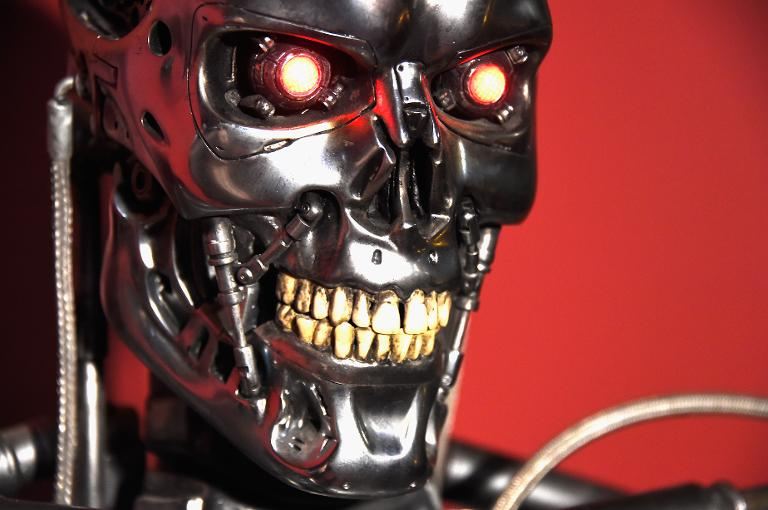There was the psychotic HAL 9000 in “2001: A Space Odyssey,” the humanoids which attacked their human masters in “I, Robot” and, of course, “The Terminator”, where a robot is sent into the past to kill a woman whose son will end the tyranny of the machines.
Never far from the surface, a dark, dystopian view of artificial intelligence (AI) has returned to the headlines, thanks to British physicist Stephen Hawking.
But experts interviewed by AFP were divided.
Some agreed with Hawking, saying that the threat, even if it were distant, should be taken seriously. Others said his warning seemed overblown.
Gains in AI are creating machines that outstrip human performance, Cerqui argued. The trend eventually will delegate responsibility for human life to the machine, she predicted.
Nick Bostrom, director of a programme on the impacts of future technology at the University of Oxford, said the threat of AI superiority was not immediate.
Bostrom pointed to current and near-future applications of AI that were still clearly in human hands — things such as military drones, driverless cars, robot factory workers and automated surveillance of the Internet.
But, he said, “I think machine intelligence will eventually surpass biological intelligence — and, yes, there will be significant existential risks associated with that transition.”
Other experts said “true” AI — loosely defined as a machine that can pass itself off as a human being or think creatively — was at best decades away, and cautioned against alarmism.
Since the field was launched at a conference in 1956, “predictions that AI will be achieved in the next 15 to 25 years have littered the field,” according to Oxford researcher Stuart Armstrong.
Jean-Gabriel Ganascia, an AI expert and moral philosopher at the Pierre and Marie Curie University in Paris, said Hawking’s warning was “over the top.”
Allan Tucker, a senior lecturer in computer science at Britain’s Brunel University, took a look at the hurdles facing AI.
– BigDog and WildCat –
Recent years have seen dramatic gains in data-processing speed, spurring flexible software to enable a machine to learn from its mistakes, he said. Balance and reflexes, too, have made big advances.
Tucker pointed to the US firm Boston Dynamics as being in the research vanguard.
It has designed four-footed robots called BigDog (https://www.youtube.com/watch?v=W1czBcnX1Ww) and WildCat (https://www.youtube.com/watch?v=dhooVgC_0eY), with funding from the Pentagon’s hi-tech research arm.
Tony Cohn, a professor of automated reasoning at Leeds University in northern England, said full AI is “still a long way off… not in my lifetime certainly, and I would say still many decades, given (the) current rate of progress.”
Despite big strides in recognition programmes and language cognition, robots perform poorly in open, messy environments where there are lots of noise, movement, objects and faces, said Cohn.
Such situations require machines to have what humans possess naturally and in abundance — “commonsense knowledge” to make sense of things.
Tucker said that, ultimately, the biggest barrier facing the age of AI is that machines are… well, machines.

COMMENTS
Please let us know if you're having issues with commenting.